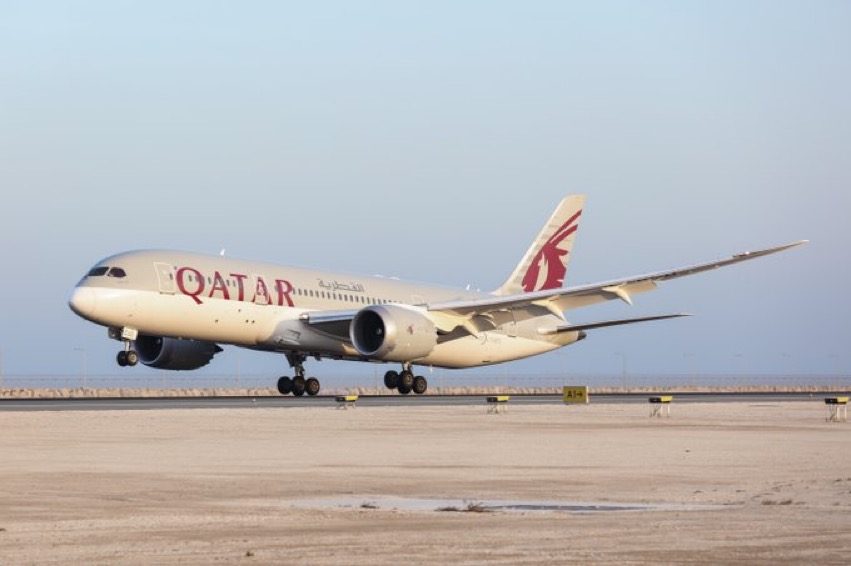According to the airline, the agreement will allow it to reduce CO2 emissions on flights from Amsterdam by about 7,500 tonnes for the fiscal year.
Qatar Airways has inked a groundbreaking deal with Shell to procure 3,000 metric tonnes of Sustainable Aviation Fuel (SAF) for its flight operations from Amsterdam’s Schiphol Airport.
The move is seen as a significant stride towards a greener aviation industry, as SAF, derived from biomass feedstocks like agricultural waste, cooking oil, or forestry waste, has been shown to emit up to 80% less carbon over its lifespan compared to traditional jet fuel.
The agreement with Shell extends an existing fuel contract that Qatar Airways has for its Amsterdam operations. The new terms stipulate that the carrier will utilise at least 5% SAF throughout the fiscal year 2023-2024.
Consequently, the airline expects to curtail its carbon emissions on flights departing from Amsterdam by approximately 7,500 tonnes of CO2 in that fiscal year, according to the press release on Wednesday.
The deal forms part of the broader sustainable fuel initiative by the One World Alliance, of which Qatar Airways is a constituent member.
The alliance, which includes major players like American Airlines, British Airways, and Iberia, has pledged to employ SAF for at least 10% of their collective fuel volumes by 2030.
Qatar Airways group chief executive, Akbar Al Baker, echoed his strong commitment towards increasing the utilisation of SAF.
Al Baker referred to a similar agreement made in the US last year, explaining, “We are placing a multimillion US dollar SAF deal in Amsterdam to illustrate our SAF commitment and reiterate our calls for a more robust SAF supply chain across our global network.”
Despite his commitment, Al Baker also expressed his skepticism regarding the feasibility of the industry achieving net zero emissions by 2050 due to insufficient production of SAF.
He warned that SAF is currently 3 to 5 times more expensive than fossil-based jet fuel, emphasising the urgent need for all stakeholders to contribute towards enhancing research, development, and financing of SAF facilities, and the importance of enacting supportive policies.
The President of Shell Aviation, Jan Toschka, agreed with Al Baker, adding, “SAF is a key lever for decarbonising aviation, but scaling its supply and use requires concerted action from across the aviation sector.”
This landmark deal designates Qatar Airways as the first Middle Eastern airline to source a large quantity of SAF in Europe, exceeding government SAF guidelines. Despite this, other airlines in the region have dabbled with SAF.







